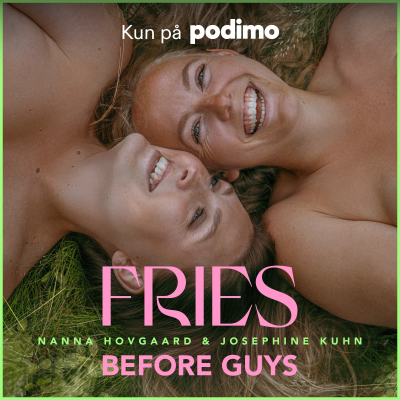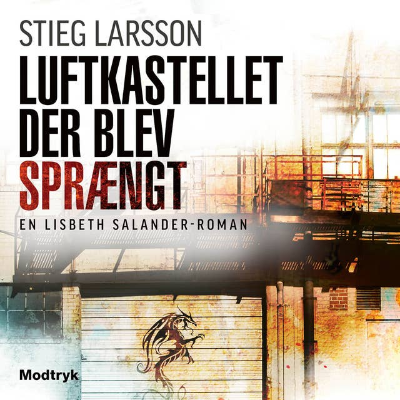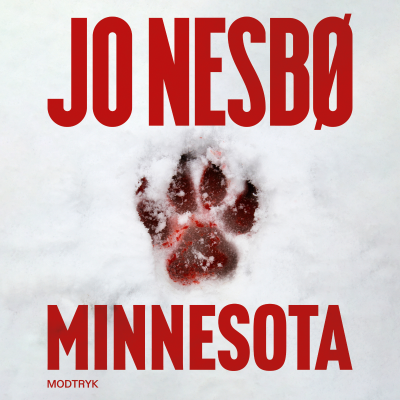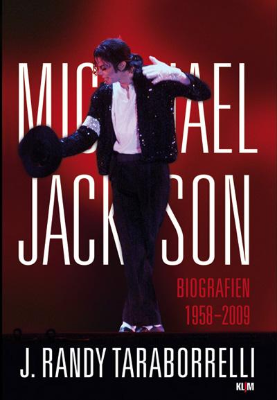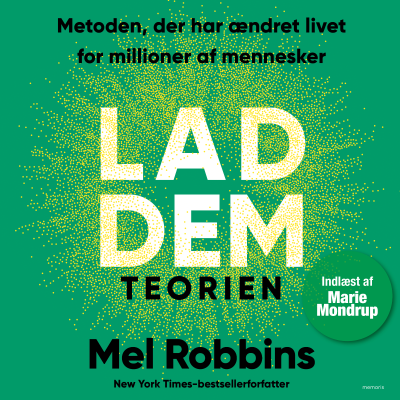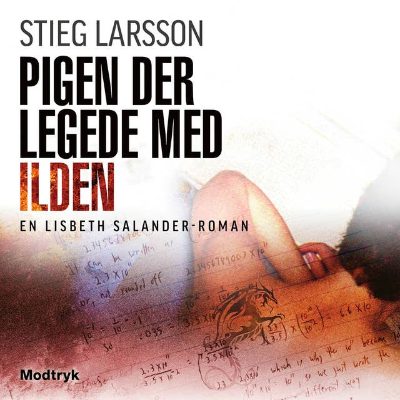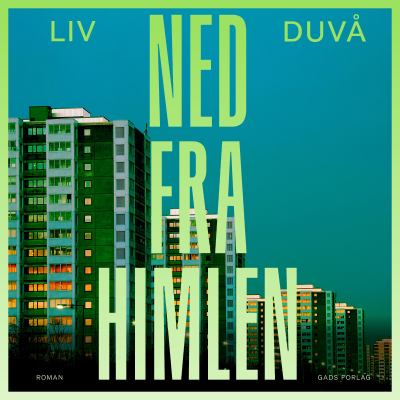
Merriam-Webster's Word of the Day
engelsk
Kultur & fritid
Begrænset tilbud
1 måned kun 9 kr.
Derefter 99 kr. / månedOpsig når som helst.
- 20 lydbogstimer pr. måned
- Podcasts kun på Podimo
- Gratis podcasts
Læs mere Merriam-Webster's Word of the Day
Free daily dose of word power from Merriam-Webster's experts
Alle episoder
1988 episoderdreidel
Merriam-Webster's Word of the Day for December 15, 2025 is: dreidel • \DRAY-dul\ • noun A dreidel is a 4-sided toy marked with Hebrew letters and spun like a top in a game of chance. The game, played by children especially at Hanukkah [https://www.merriam-webster.com/dictionary/Hanukkah], is also called dreidel. // All the kids in the family look forward to playing dreidel together during Hanukkah. See the entry > [https://www.merriam-webster.com/dictionary/dreidel] Examples: “The Jewish tradition has always been syncretic [https://www.merriam-webster.com/dictionary/syncretic], adapting and responding to the culture around it, he [Rabbi Steven Philp] said. Hanukkah is ‘a great example of this,’ Philp said, noting that the holiday’s traditions—like spinning the dreidel, eating latkes or potato pancakes, and munching on ... jelly-filled doughnuts—are customs that were borrowed from neighboring cultures over time.” — Kate Heather, The Chicago Sun-Times, 25 Dec. 2024 Did you know? If your dreidel is spinning beneath the glow of the menorah [https://www.merriam-webster.com/dictionary/menorah], it’s probably the Jewish festival of lights known as Hanukkah. The holiday celebrates the miracle of a small amount of oil—enough for one day—burning for eight days in the Temple of Jerusalem. And though it’s a toy, the dreidel’s design is very much an homage [https://www.merriam-webster.com/dictionary/homage]: on each of its four sides is inscribed a Hebrew letter—nun, gimel, he, and shin—which together stand for Nes gadol haya sham, meaning “A great miracle happened there.” (In Israel, the letter pe, short for po, “here,” is often used instead of shin). In the game of dreidel, each letter bears its own significance: the dreidel is spun and depending on which letter is on top when it lands, the player’s currency, or gelt [https://www.merriam-webster.com/dictionary/gelt], is added to or taken from the pot. Nun means the player does nothing; gimel means the player gets everything; he means the player gets half; and shin means the player adds to the pot. Wherever you land on holiday traditions, we wish you words of gimel: gratitude, grub, and, of course, gaiety [https://www.merriam-webster.com/dictionary/gaiety].
multitudinous
Merriam-Webster's Word of the Day for December 14, 2025 is: multitudinous • \mul-tuh-TOO-duh-nus\ • adjective Multitudinous is a formal word with meanings that relate to multitudes. It can mean “existing in a great multitude”—that is, “very many”; or “including a multitude of individuals”; or “existing in or consisting of innumerable elements or aspects.” // The two old friends reminisced about the multitudinous ways in which their lives had changed. // The author’s appearance is expected to attract a multitudinous gathering that will fill the auditorium. See the entry > [https://www.merriam-webster.com/dictionary/multitudinous] Examples: “Launched as Holton’s artistic inquiry into his own Chinese heritage, the project has evolved into a profound examination of family dynamics, migration, and cultural hybridity in contemporary New York, where the American identity is multitudinous.” — Natasha Gural, Forbes, 11 June 2025 Did you know? “I am large, I contain multitudes.” So wrote Walt Whitman [https://www.britannica.com/biography/Walt-Whitman] in his most celebrated poem, “Song of Myself [https://www.britannica.com/topic/Song-of-Myself].” He was expressing his ability to hold within himself contradictory statements, facets, opinions, beliefs, etc. Another, if less poetic, way of saying “I contain multitudes” might be “I am multitudinous,” using the sense of that five-syllable word meaning “existing in or consisting of innumerable elements or aspects.” Multitudinous doesn’t have a lot of meanings—three to be exact—but each one concerns, well, a lot. In addition to serving Whitmanesque purposes as noted above, multitudinous is the kind of highly expressive word that you can rely upon when you want something a little more emphatic than plain old numerous [https://www.merriam-webster.com/dictionary/numerous], as in “multitudinous possibilities.” Lastly, its original sense—still in use today—is a synonym of populous [https://www.merriam-webster.com/dictionary/populous] meaning “including a multitude of individuals,” as in “the multitudinous city.”
alleviate
Merriam-Webster's Word of the Day for December 13, 2025 is: alleviate • \uh-LEE-vee-ayt\ • verb To alleviate something is to make it less painful, difficult, or severe. Alleviate can also mean "to partially remove or correct." // There's no cure for the common cold, but there are various treatments that may alleviate some of the symptoms. // The new tunnel should alleviate traffic congestion on the bridge. See the entry > [https://www.merriam-webster.com/dictionary/alleviate] Examples: "The funds are meant to alleviate monetary barriers and enhance the fashion industry's talent pipeline." — Rosemary Feitelberg, Footwear News, 30 Oct. 2025 Did you know? Now for a bit of light reading. Alleviate comes from Latin levis, meaning "having little weight." (Levis also gave rise to the English adjective light [https://bit.ly/49dQwLS] as in "not heavy.") In its early days during the 16th century, alleviate could mean both "to cause (something) to have less weight" or "to make (something) more tolerable." The literal "make lighter" sense is no longer used, and today only the "relieve, lessen" sense remains. Incidentally, not only is alleviate a synonym of relieve, it's also a cousin: relieve [https://www.merriam-webster.com/dictionary/relieve] comes from Latin levare ("to raise"), which in turn comes from levis.
waggish
Merriam-Webster's Word of the Day for December 12, 2025 is: waggish • \WAG-ish\ • adjective Waggish describes someone who is silly and playful, and especially someone who displays a mischievous sense of humor. The word can also describe things that such a person might do or possess. // He had a waggish disposition that could irk adults but typically delighted children. // She denied the prank but did so with a waggish smirk that didn't match her disavowal. See the entry > [https://www.merriam-webster.com/dictionary/waggish] Examples: “[Patricia] Lockwood began her writing life quietly, as a poet. She found her first major audience on Twitter, posting self-proclaimed ‘absurdities’ ... that quickly came to define the medium’s zany, waggish ethos ...” — Alexandra Schwartz, The New Yorker, 25 Aug. 2025 Did you know? One who is waggish acts like a wag. What, then, is a wag? It has nothing to do with a dog’s tail; in this case a wag is a clever person prone to joking. Though light-hearted in its use and meaning, the probable source of this particular wag [https://bit.ly/3WUgRqV] is grim: it is thought to be short for waghalter, an obsolete English word that translates as gallows bird [https://bit.ly/3LINC82], a gallows bird being someone thought to be deserving of hanging (wag being the familiar wag [https://www.merriam-webster.com/dictionary/wag] having to do with movement, and halter [https://www.merriam-webster.com/dictionary/halter] referring to a noose). Despite its gloomy origins, waggish is now often associated with humor and playfulness—a wag is a joker, and waggery [https://www.merriam-webster.com/dictionary/waggery] is merriment or practical joking. Waggish can describe the prank itself as well as the prankster type; the class clown [https://bit.ly/49Qqmis] might be said to have a “waggish disposition” or be prone to “waggish antics.”
leviathan
Merriam-Webster's Word of the Day for December 11, 2025 is: leviathan • \luh-VYE-uh-thun\ • noun Leviathan is a word with literary flair that can refer broadly to something very large and powerful, or more narrowly to a large sea animal, or a totalitarian state having a vast bureaucracy. // Towering leviathans of the forest, giant sequoias often reach heights of more than 200 feet. See the entry > [https://www.merriam-webster.com/dictionary/leviathan] Examples: “These are dim days for the leviathan merchants. The smart whaling families have diversified and will hang onto their wealth for years to come. ... The less smart, those convulsed by the strange desire to continue doing what had always been done, who consider it a divinely issued directive to rid the waves of great fish, now face a problem: the Atlantic whale that built their houses and ships has seemingly wised up ...” — Ethan Rutherford, North Sun, or The Voyage of the Whaleship Esther: A Novel, 2025 Did you know? Old Testament references to a huge sea monster, Leviathan (in Hebrew, Liwyāthān), are thought to have been inspired by an ancient myth in which the god Baal [https://www.merriam-webster.com/dictionary/baal] slays a multiheaded sea monster. Leviathan appears in the Book of Psalms [https://www.merriam-webster.com/dictionary/Psalms] as a sea serpent that is killed by God and then given as food to creatures in the wilderness, and it is mentioned in the Book of Job [https://bit.ly/4nt0i0h] as well. After making a splash in English in the 1300s, the word Leviathan began to be used, capitalized and uncapitalized, for enormous sea creatures both imagined and real—including as a synonym of whale over 100 times in Herman Melville’s Moby-Dick, as in “ere the Pequod’s weedy hull rolls side by side with the barnacled hulls of the leviathan.” Today, leviathan can be used for anything large and powerful, from ships to corporations.
Vælg dit abonnement
Begrænset tilbud
Premium
20 timers lydbøger
Podcasts kun på Podimo
Gratis podcasts
Opsig når som helst
1 måned kun 9 kr.
Derefter 99 kr. / måned
Premium Plus
100 timers lydbøger
Podcasts kun på Podimo
Gratis podcasts
Opsig når som helst
Prøv gratis i 7 dage
Derefter 129 kr. / month
1 måned kun 9 kr. Derefter 99 kr. / måned. Opsig når som helst.








